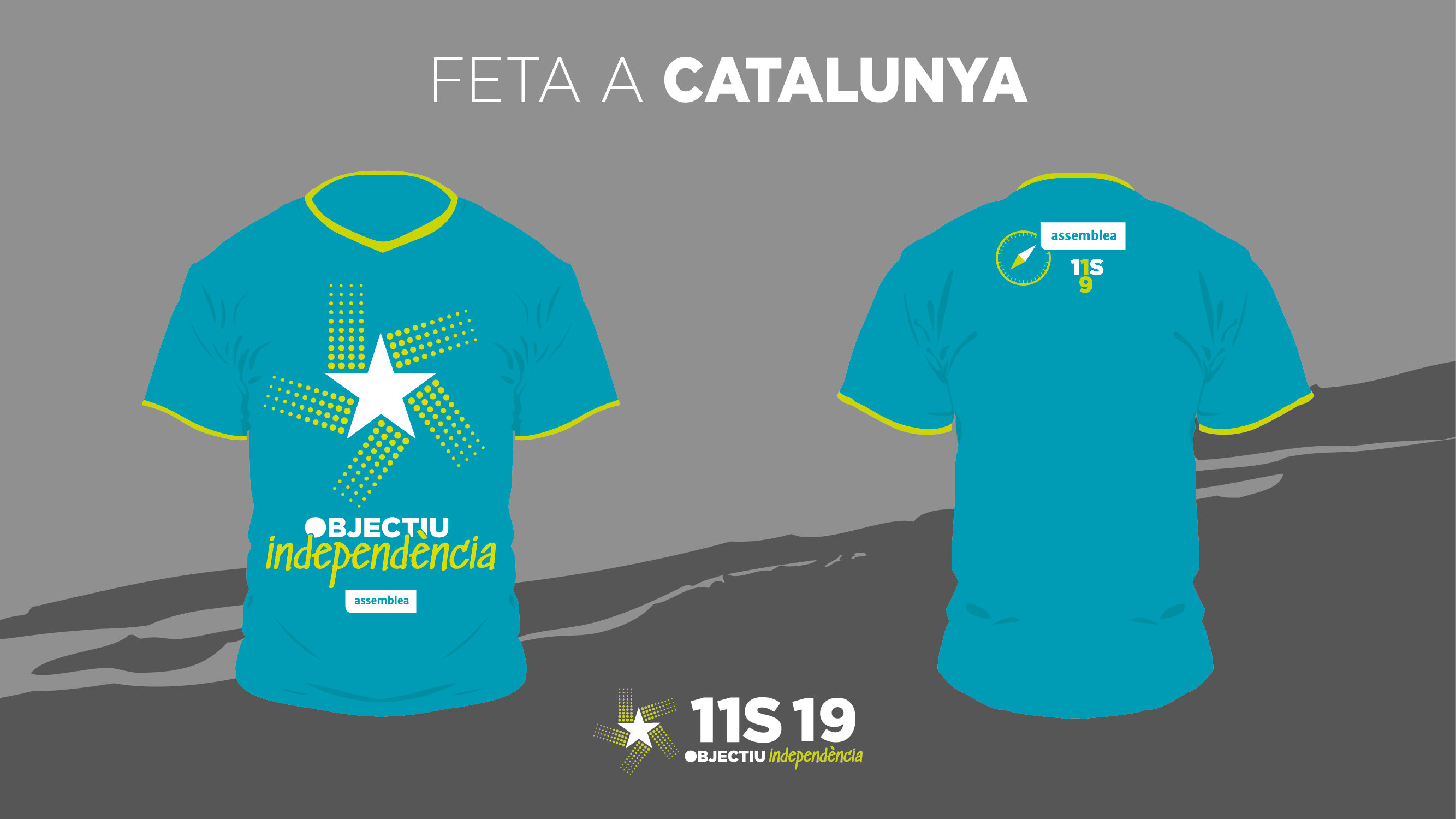Are people losing interest in Catalonia’s pro-independence demonstrations?
Yesterday the Catalan National Assembly (ANC) released initial data on this year’s pro-independence rally, with the main headline being that registrations for the event have fallen 25%.
Every year since 2013, the pro-independence organisation has organised a large protest in support of independence on 11 September, Catalonia’s national day. So far 37,500 people have registered to take part in this year’s demonstration, a fall of one quarter compared to this time last year.
The drop in registrations was gleefully reported by the Madrid-based media, with El Mundo’s headline recalling that it is the lowest uptake in six years, while El País says that the reduction comes in the middle of division within the pro-independence movement. Catalan media sympathetic towards independence also recognised the fall, with El Nacional, El Punt Avui and VilaWeb all reporting the registration data.
The division between the two main secessionist political parties Junts per Catalunya (Together for Catalonia) and Esquerra Republicana de Catalunya (Republican Left of Catalonia) is well documented, particularly since local elections in May, following which both parties formed post-electoral pacts with unionists across Catalonia.
In the midst of the political division, the ANC decided that this year’s demonstration should be about highlighting that, wherever people come from, their objective is the same: the independence of Catalonia. To achieve this, they are focusing the protest on Barcelona’s plaça d’Espanya, where demonstrators will merge from the five main surrounding streets and form the shape of a star. The motto for this year’s demonstration is Objectiu independència, or Objective independence.
The ANC has said that it believes the drop in registrations is down to the fact that there is no “performance”, a key element to previous rallies such as last year’s sound wave or the giant arrow which made its way along the Avinguda Meridiana in 2015. According to the ANC, even though people intend to take part in the protest, the absence of a similar “performance” this year means they believe they don’t need to register.
Although it assists the ANC with planning for the event, registration is not mandatory and people attending the rally without first registering with the ANC would not be a new phenomenon. Last year, 460,000 people registered their attendance online ahead of the protest, while the local police calculated that 1 million ultimately filled the Avinguda Diagonal.
Despite this the organisation is still calling on those who will be attending to register on their dedicated website, to ensure the rally is a success.
Although registrations have fallen, the ANC was able to highlight statistics which they believe point to another high turnout. So far, 450 buses have been reserved to take people from around Catalonia to the protest, which is on a par with this time last year, while the number of t-shirts sold has increased by 5% to 178,000. The latter is particularly important for the organisation, as €6 from the sale proceeds of every t-shirt goes towards funding its year-round campaigns.

So are people losing interest in the annual pro-independence demonstrations? The drop in registrations does seem to indicate that this year’s turnout will be lower, while the increase in the sale of the t-shirts suggests otherwise. There have certainly been many comments online from pro-independence supporters who believe that the ANC have got this year’s demonstration wrong, most notably exiled minister Clara Ponsatí, and that, instead of selling more t-shirts and filling the streets of Barcelona, the protest should be marching on government buildings to demand unity between the pro-independence parties and the implementation of the Catalan Republic.
Ultimately, however, we will not know how successful the demonstration has been until we reach 11 September. And there’s only 18 days to go.
